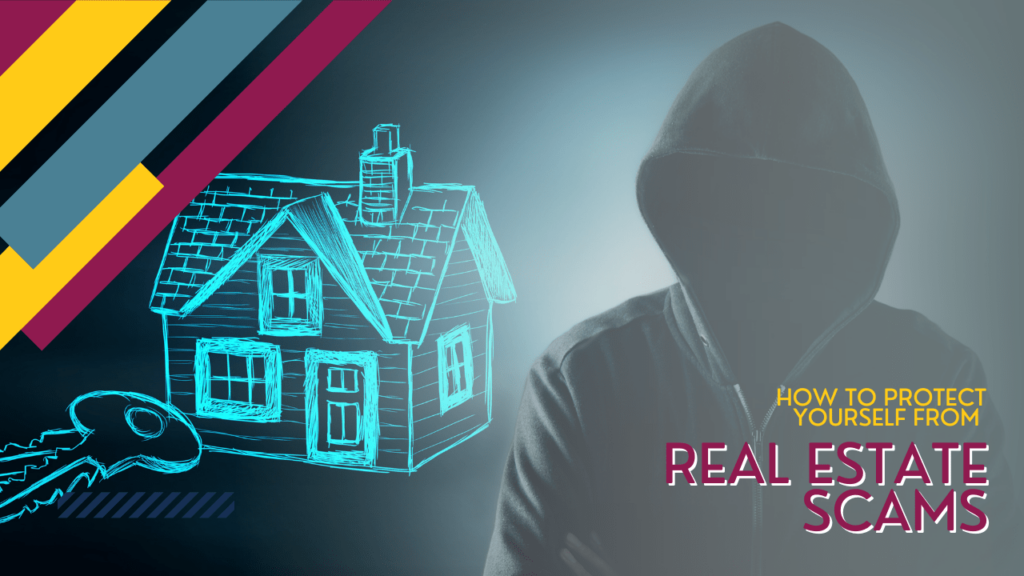
Technology has helped us to move forward as an industry. When we’re talking about property management in Las Vegas, we can tell you that your property is being leased, managed, and maintained more efficiently and effectively than ever before thanks to technology.
With all that new technology has come new opportunities.
Some of us look for opportunities to do good.
Others look for opportunities to do bad.
Scammers have become more creative, and with a lot of the marketing, applying, and screening happening online, it’s often easier for criminals to take advantage of tenants and owners. Real estate scams in Las Vegas are unfortunate. They’re also on the rise.
Whether you’re a landlord or a tenant, navigating the Las Vegas real estate market can be tricky. No matter how smart, experienced, and informed you are, you may discover that you’re not immune to scams that can leave both renters and property owners reeling.
We don’t like it.
Neither do you.
So, we are helping real estate investors and owners understand common rental scams so you know how to protect yourself. This is crucial for avoiding financial loss and stress.
We’ll also talk about some of the scams that are targeted at tenants. When we can educate and influence tenants to make smart and safe decisions, the entire industry does better at serving the people who are our customers; the renters who are looking for homes.
Common Rental Scams in the Las Vegas Rental Market
Scams are damaging not only economically but to a person’s sense of peace and security. There is a lot of creativity among the scammers out there, and you may be surprised that some of the things you take for granted are actually being orchestrated in order to remove you from your money and even your property.
Here are the most common rental scams we have been tracking that are occurring all over the country, but especially in Las Vegas.
- Fake Listings
Scammers often create fake listings for properties that either don’t exist or aren’t available for rent. They might use real photos and descriptions to make the listing look legitimate, but their goal is to collect deposits or personal information. This is especially dangerous for tenants, who may be attracted to a listing that has a dramatically low rent. The scammer may pose as the landlord and ask for a deposit before a showing is scheduled, or they’ll provide an excuse for why a showing is not possible before an application is submitted, with money. Fake listing scams can also affect owners because the scammers may take a property that you’re renting out yourself and copy all of the information while providing their own contact details. Tenants will think they’re renting your home, but they’re not.
- Phishing Scams
Phishing scams involve fake emails or websites that mimic legitimate rental platforms. The aim is to trick you into providing sensitive information, such as your Social Security number or bank details. If you get an email inviting you to list a property for rent on a platform, make sure you’re dealing with a legitimate rental site. Don’t hand over information about your property to anyone who asks. Don’t upload sensitive information if you’re not absolutely sure of who is requesting it.
Phishing can happen with the simple click on a link. It’s important to remain vigilant so you don’t have someone stealing your property’s marketing materials, photos, and listing. You also don’t want to provide payment details that will lead to robbery. Work directly with the rental sites you know and trust. Even better – put a property manager in charge of all the marketing, advertising, and security that’s necessary in order to rent out a home safely.
- Overpayment Scams
This one is especially dangerous for rental property owners. In this scam, a prospective tenant sends a check for more than the required deposit and then asks for a refund of the excess amount. The original check eventually bounces, leaving the landlord out of pocket. Always collect a deposit in certified funds and never deposit or accept an amount that isn’t what you asked.
- Identity Theft
This is a risk that isn’t unique to the rental industry. Identity theft occurs when scammers use your personal information to apply for loans or credit cards in your name, causing significant financial and emotional distress. Protect your personal information and sign up for one of the many services out there that will alert you when credit is being applied for with your credentials.
How Landlords Can Protect Themselves
What can you do to avoid becoming a victim of one of the common or even a not-so-common scam as you’re renting out your property? Here are a few recommendations we always make:
- Verify Tenant Information
Always verify the identity and background of potential tenants. Conduct thorough background checks, including credit reports and rental history. You want to check for past eviction records, you want to talk to former landlords, you want to get an idea of whether this person is honest and reliable before you let them move into your property. Make sure the information they provide matches the information you collect.
- Use Secure Payment Methods
Avoid accepting checks or money orders. Instead, use secure payment methods like direct bank transfers or reputable online payment services. If you work with a property manager in Las Vegas, you’ll be able to leave the security of payments to them; we have software in place that allows for easy online payments and direct deposits. This is safer and more convenient. There’s less of a chance that you or your tenant will be scammed.
- Written Agreements
Everything must be in writing all the time. Documentation is important for a number of reasons, and one of those reasons is that it protects you from potential scammers. Make sure your rental agreements are in writing and include all terms and conditions. This can help protect you in case of disputes.
- Conduct Regular Walkthroughs
Conduct regular walkthroughs to ensure your Las Vegas investment property is being maintained and to catch any potential issues early. There’s less of a chance that you’ll be the victim of scams if you can keep eyes on your property routinely.
How Tenants Can Protect Themselves
Educate tenants when you can, and help them protect themselves against prospective scams.
If you are a tenant and you’re looking for a home to rent, these are some of the precautions you’ll want to take.
- Research the Property
Before making any payments, research the property and the landlord. Make sure you’re able to schedule a showing in person. Look up and verify ownership through public records.
- Visit the Property
Always visit the property in person before signing a lease or making any payments. This helps confirm the listing is legitimate.
- Use Reputable Leasing Platforms
Use reputable rental platforms that offer built-in protections against scams.
- Avoid Upfront Payments
Be wary of landlords who ask for large upfront payments without meeting in person or showing the property.
Identifying Risk and Reporting Fraud
How do you know you’re perhaps dealing with a scammer? Trust your instinct and look for red flags. If a deal seems too good to be true, it probably is. It’s also important that you act quickly. A scammer will likely pressure you to act quickly to avoid missing out on a “great deal.” Take your time. Do your due diligence.
Think about the communication you’re receiving, too. Phishing scams will often be full of spelling mistakes, poor grammar, or unprofessional language. All of these things are red flags and may indicate a scam.
If you encounter a suspicious listing or individual, report it to local authorities and the platform where you found the listing. This can help prevent others from falling victim to the same scam.
Here’s how you can report real estate scams:
- Contact Local Law Enforcement
If you encounter or fall victim to a real estate scam, your first step should be to contact your local police department. Providing them with all the details of the scam can help them investigate the matter and potentially prevent future incidents.
- Report to the Federal Trade Commission (FTC)
The FTC collects scam reports and uses this information to build cases against fraudsters, identify trends, and educate the public.
- Notify the Nevada Real Estate Division
If the scam involves a licensed real estate professional, you can report the incident to the Nevada Real Estate Division. They have the authority to take disciplinary action against licensees engaged in fraudulent activities.
Use Online Fraud Reporting Tools
 Many online platforms, such as Craigslist and Zillow, offer tools to report fraudulent listings and suspicious activity. Make sure to provide as much information as possible to assist in the removal of the scam listings and prevent others from becoming victims.
Many online platforms, such as Craigslist and Zillow, offer tools to report fraudulent listings and suspicious activity. Make sure to provide as much information as possible to assist in the removal of the scam listings and prevent others from becoming victims.
By taking these steps, you not only protect yourself but also contribute to a community-wide effort to combat real estate scams
While the Las Vegas real estate market offers many opportunities, there are always risks, and it’s essential to stay vigilant against scams. By understanding common rental scams and taking proactive measures, both landlords and tenants can protect themselves and enjoy a smoother renting experience. For more tips and expert advice, feel free to reach out to our team.
At New West Property Management expertly manages residential rental homes in Las Vegas and throughout Clark County, including Henderson and North Las Vegas.
